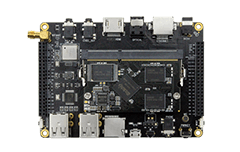Build Kernel¶
Install Development Packages¶
Install development packages:
sudo apt-get install build-essential lzop libncurses5-dev libssl-dev
# If using 64 bits Ubuntu, you need also:
sudo apt-get install libc6:i386
Install mkbootimg utility:
git clone https://github.com/neo-technologies/rockchip-mkbootimg.gitcd rockchip-mkbootimg
make && sudo make install
If you have already downloaded the Firefly-RK3128 Android SDK, the kernel source and cross compiling toolchain are in SDK/kernel and SDK/prebuilts respectively. Please skip to next step.If not, please download the kernel source code and Android’s arm-eabi-4.6 cross compiling toolchain.Download the kernel source code:
git clone https://bitbucket.org/T-Firefly/fireprime-kernel.git
Note: This is Linux kernel source code in separated source repository, which is extracted from fireprime branch of Firenow-Lollipop Android SDK, for convenience of users who only want the kernel source code instead of the huge sdk.For Android’s arm-eabi-4.6 cross compiling toolchain, you may look around to see if any local Android SDK has prebuilts/gcc/linux-x86/arm/arm-eabi-4.6. If there is, you can reuse it; otherwise download from here and extract it.
Compile Kernel¶
Compile Image¶
If you are not compiling kernel in the SDK, you need to specify ARCH and CROSS_COMPILE first:
export ARCH=arm
export CROSS_COMPILE=/path/to/prebuilts/gcc/linux-x86/arm/arm-eabi-4.6/bin/arm-eabi-
In the kernel source directory, execute:
make fireprime-linux_defconfig
make -j8 rk3128-fireprime.img
Compile Kernel Modules¶
Run:
make modules
mkdir modules_insatll
make INSTALL_MOD_PATH=./modules_install modules_insatll
Copy the kernel module files to the root file system:
rsync -av ./modules_install/ /path/to/your/rfs/
You can also copy to the development board, using ssh remote connection:
rsync -av ./modules_install/ root@<Board IP>:/
Clean up the module install directory (it contains links which impact compilation of Android SDK):
rm -rf ./modules_install
Create linux-boot.img¶
Create Initramfs¶
The kernel will load the initramfs as the first root file system. It is in charge of finding the actual root device, load it then finally switch to it.
git clone -b fireprime https://github.com/TeeFirefly/initrd.gitmake -C initrd
Package Kernel and Initramfs¶
Pack kernel and initramfs into linux-boot.img:
truncate -s "%4" initrd.img
mkbootimg --kernel arch/arm/boot/zImage --ramdisk initrd.img -o linux-boot.img
Modify Parameter File¶
The root file system can reside on different partitions in different storage devices (eMMC, TF card or USB disk, etc). It must be specified in the kernel’s command line. There is a CMDLINE in the paramter file. Add one of below according to your need: (# and contents after are comments, no need to enter):
root=/dev/block/mtd/by-name/linuxroot # flash partition named "linuxroot"
root=/dev/mmcblk0p1 # First partition of TF card
root=/dev/sda1 # First partition of USB disk
root=LABEL=linuxroot # Partition whose label is "linuxroot"
This is the parameter file used in official dual boot firmware, for reference only:
FIRMWARE_VER:5.1
MACHINE_MODEL:rk312x
MACHINE_ID:007
MANUFACTURER:RK30SDK
MAGIC: 0x5041524B
ATAG: 0x60000800
MACHINE: 312x
CHECK_MASK: 0x80
KERNEL_IMG: 0x60408000
#RECOVER_KEY: 1,1,0,20,0
CMDLINE:console=ttyFIQ0,115200 earlyprintk androidboot.hardware=rk30board androidboot.console=ttyFIQ0 board.ap_has_alsa=0 init=/init initrd=0x62000000,0x00800000 mtdparts=rk29xxnand:0x00002000@0x00002000(uboot),0x00002000@0x00004000(misc),0x00008000@0x00006000(resource),0x00008000@0x0000e000(kernel),0x00010000@0x00016000(boot),0x00010000@0x00026000(recovery),0x0001a000@0x00036000(backup),0x00040000@0x00050000(cache),0x00002000@0x00090000(kpanic),0x00180000@0x00092000(system),0x00002000@0x00212000(metadata),0x00200000@0x00214000(userdata),0x00020000@0x00414000(radical_update),-@0x00434000(user)
Flash to Device¶
Please reference Flash image, flash parameter file and its corresponding partition images.If you are upgrading from official firmware, flash linux-boot.img to the following partion, according to the firmware type:

If the root filesystem image is not flashed yet, you can download the prebuilt image, or customize your own one, and flash it to the partition specified in parameter file.
